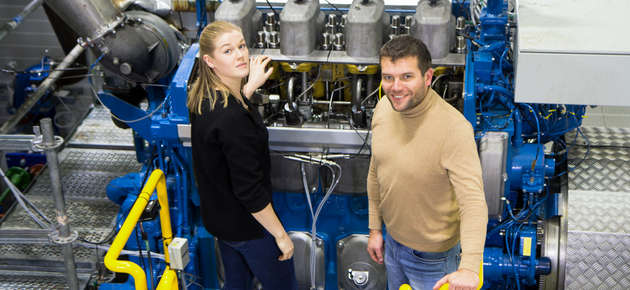Universities and the industry are building research collaboration to create cleaner solutions ...


According to Maciej Mikulski, Associate Professor, Internal Combustion Engines at the University of Vaasa, the consortium hopes that the four Finnish universities that are part of the picture from the outset will subsequently be joined in the undertaking by a number of international research partners as well as 5-10 companies that have a desire to become committed to it, along with relevant legal and political partners.
"One significant aspect of the project is that it marks the first-ever collaboration of this magnitude between Wärtsilä and AGCO Power, two leading engine technology and energy production equipment manufacturers in Finland, for the purpose of rising to the challenge that concerns them both."
The collaboration between the universities, Wärtsilä and AGCO Power will be complemented by fuel companies, after-treatment equipment manufacturers and providers of electrical energy production solutions.
The objective is to establish a joint research and innovation project and implement it in close collaboration between the members of the new consortium. The joint research project Clean Propulsion Technologies, a continuation of the current CleanShip preparation project, is scheduled to commence in 2021.
"What we need is willingness for joint development. A good level of trust has already been established between the parties, for the benefit of everyone. I am very positively surprised by how favourably the new project has been received," says Mikulski.
Part of the Engine Research Initiative between Wärtsilä and four universities
CleanShip is part of ERI, the joint Engine Research Initiative between Wärtsilä and four leading Finnish higher education providers, the University of Vaasa, Aalto University, Tampere University and Åbo Akademi University.
"This ecosystem is intended to jointly determine the future direction of internal combustion engine research and secure funding for the research from Business Finland and other research funding bodies. Furthermore, it is important to build long-standing collaboration between universities and the Finnish industry in support of high-quality research. Already three ERI projects in different stages have received external research funding. CleanShip and its continuation Clean Propulsion Technologies are a prime example of this," says Mikael Wideskog, General Manager at Wärtsilä's Technology Strategy & Innovation Process.
"The projects that are part of the Engine Research Initiative are precisely focused on the currently topical research area of low-carbon energy solutions, which means that our university is very much up with the times," says Seppo Niemi, Professor of Energy Technology at the University of Vaasa.
Aiming at a machinery solution that meets stringent emission requirements
Mikulski says that the upcoming Clean Propulsion Technologies research project, which is to follow the current preparation project, will involve development of virtual sensors for engines and after-treatment systems based on mathematical modelling as well as demonstration of new, extremely clean multi-fuel combustion technologies, to mention a couple of examples. These new solutions are then combined into a machinery system that utilises a number of different energy forms.
The goal is to develop a solution that meets the future requirements for emissions and greenhouse gases. The project is also set out to determine what sort of legal requirements and business models are related to the new technologies.
Further information
Contact person for further information: Merja Kangasjärvi, Development Manager, VEBIC/University of Vaasa, tel. +358 (0)29 449 8205, e-mail merja.kangasjarvi@uwasa.fi
Person in charge of the project: Maciej Mikulski, Associate Professor, University of Vaasa, tel. +358 (0)29 449 8591, e-mail maciej.mikulski@uwasa.fi
